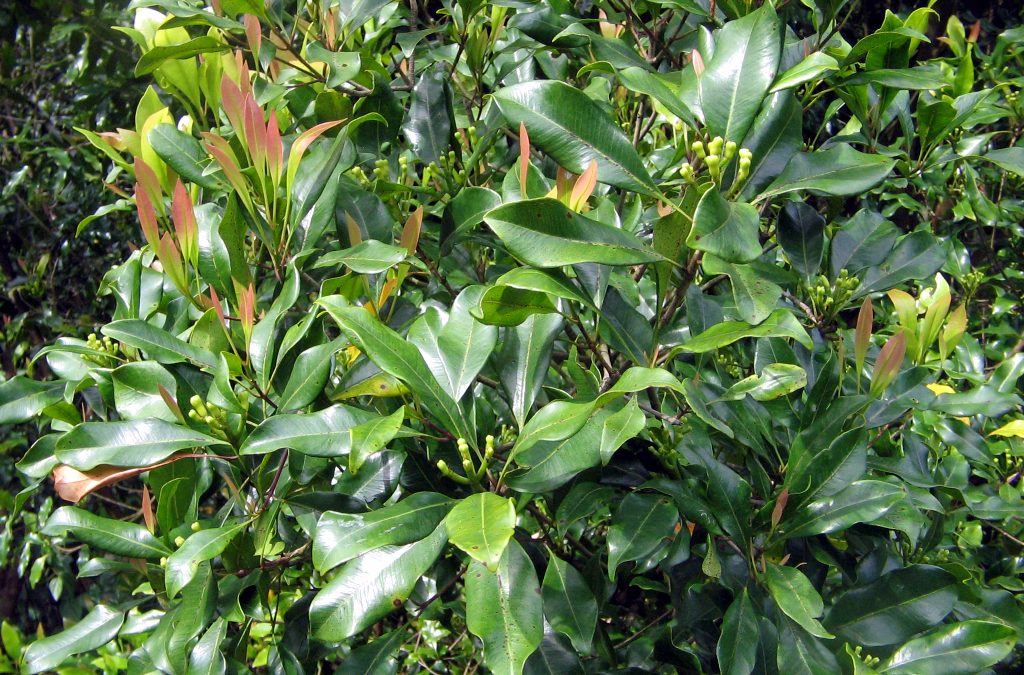Clove’s medicinal properties have been extensively studied. The species belongs to the guava family Myrtaceae. The tree of Syzygium aromaticum is 8-12 meters tall. The aromatic flower buds of the tree are used as a spice. The cloves have a hard exterior but are fleshy inside. The essential oil in the buds makes for the fleshiness of the clove and is the source of both nutrition and flavor. The spice has a warm, sweet, aromatic, and slightly peppery taste.
Cloves contain a substantial quantity of eugenol. The eugenol content in clove oil makes up to 70-85%. The ORAC (Oxygen Radical Absorption Capacity) value of cloves has been placed at over 10 million, 400 times more powerful than the antioxidant contained in blueberry. This high ORAC value makes cloves valuable as both nutraceutical and in medicine. Cloves are an excellent source of manganese, vitamin K, and dietary fiber.
Clove’s medicinal properties and toxicological impacts have been studied. Accidental ingestion of clove essential oil by a seven-month-old infant showed the development of central nervous system depression, urinary, and other abnormalities (Lane et al., 1991).
However, human consumption of naturally existing methyl eugenol has properties like the known carcinogen safrole. In experiments on rats, the molecule was seen to eliminate rapidly from the human system in trials conducted in the US, raising questions about the safety of clove essential oil for human use. But conclusive evidence of this effect is still lacking (Schecter et al., 2004).
Eugenol is used in dentistry. But it is not a bio-friendly material. It has irritative and cytotoxic properties and external hypertensive reactions to soft oral tissue. When consumed as a spice, it is best to use it in moderation.
Here is a list of references for those who wish to learn more about cloves and other spices.
References:
Lane, B. W., Ellenhorn, M. J., Hulbert, T. V., & McCarron, M. (1991). Clove oil ingestion in an infant. Human & experimental toxicology, 10(4), 291-294.
Yoo, C. B., Han, K. T., Cho, K. S., Ha, J., Park, H. J., Nam, J. H., … & Lee, K. T. (2005). Eugenol isolated from the essential oil of Eugenia caryophyllata induces a reactive oxygen species-mediated apoptosis in HL-60 human promyelocytic leukemia cells. Cancer Letters, 225(1), 41-52.
Raghavenra, H., Diwakr, B. T., Lokesh, B. R., & Naidu, K. A. (2006). Eugenol—The active principle from cloves inhibits 5-lipoxygenase activity and leukotriene-C4 in human PMNL cells. Prostaglandins, leukotrienes and essential fatty acids, 74(1), 23-27.
Thompson, D. C., Constantin-Teodosiu, D., & Moldéus, P. (1991). Metabolism and cytotoxicity of eugenol in isolated rat hepatocytes. Chemico-biological interactions, 77(2), 137-147.
Asian Herbs– Sudhir Ahluwalia (Available on Amazon)
